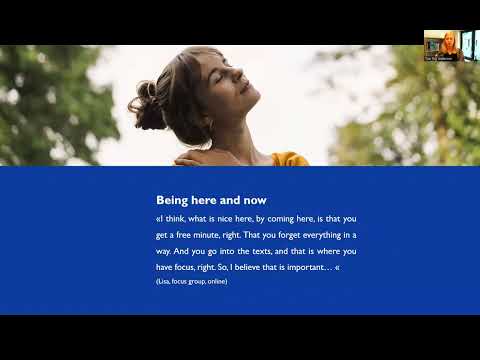 Speaker: Tine Riis Andersen
Speaker: Tine Riis Andersen
 Affiliation: The Reading Center, University of Stavanger
Affiliation: The Reading Center, University of Stavanger
Title: “The Poem Opened a Door to… Something”: Investigating Transformative Reading in Shared Reading Groups for Cancer Patients
Abstract A transformative reading experience is when “both text and reader are mutually modified (Fiahlo, 2019). This understanding, that the text, and especially, the reader is modified, e.g., through self-modifying feelings (Fialho, 2012; Kuiken 2004), will be central for this conference paper which presents instances of transformative reading in and between Shared Reading sessions for cancer patients. Experimental studies have found that life-crises increase the likelihood of transformative reading experiences that alters the self through expressive enactment (Kuiken et al, 2004; Tangerås, 2018). As cancer patients are going through a significant life change, they might be particular prone to transformative reading. This paper is based on data from two groups of 16-weeks (one online and one physical) for cancer patients (N=13) carried out in Norway Sep. 2021-Jan 2022. Transcripts from selected sessions and participant’s audio diaries recorded at home between sessions will be analyzed using qualitative coding. Moreover, quantitative data of reader responses have been collected by using “The Experiencing Questionnaire” (Kuiken et al., 2012) and the “Aesthetic Emotions Scale” (Schindler et al., 2018) to locate the occurrence of self-modifying feelings (Fialho, 2012; Kuiken, 2004) in response to specific texts. The study found that transformation often happened through strong attachment (Felski, 2020) to a text. The participants from the study reported that the text stayed ‘inside’ of them and that the text ‘kept coming back’ to their mind. The active verbs used by the participants suggests that transformation took place in participants between sessions and that the text has some kind of ‘agency’. This also showed in situations where concrete poems or short stories moved and inspired the participants to think, act and share in and outside the reading group. Developing children’s socioemotional skills through picturebooks.


